|

Return to Schedule
PCRS 2022 Faculty
|
Faculty
|
Sessions |
|
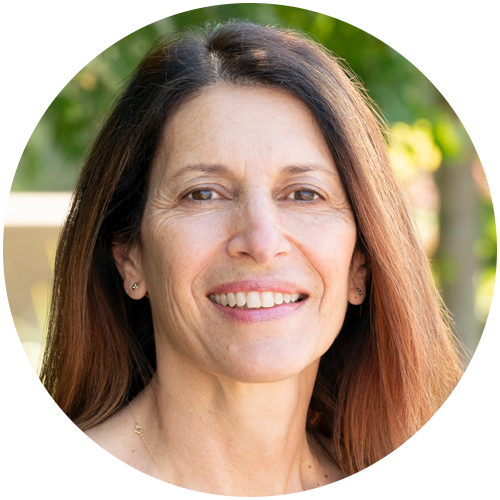
Paula Amato, MD
Paula Amato, MD is Professor of Obstetrics & Gynecology at Oregon Health & Science University in Portland, OR and Vice President of the American Society for Reproductive Medicine.
|
The Latest on Gene Editing
Thursday, 8:00 AM
Debate: Non-Invasive Embryo Selection Techniques Are Clinically Useful
Thursday, 2:45 PM
|
|
 Nicole Banks, MD Nicole Banks, MD
Dr. Nicole Banks grew up in Dale City, Virginia. She received her medical degree from the University of Virginia School of Medicine and completed her residency in Obstetrics and Gynecology at Georgetown University Hospital. She then completed a 3-year research intensive Genetics fellowship at the National Institutes of Health and is a board certified Clinical Geneticist. She continued her research and specialty training in Reproductive Endocrinology and Infertility at the National Institutes of Health, graduating in 2017. After graduation, she spent 1 year in private practice, followed by 3 years as faculty at Virginia Commonwealth University. She recently joined Shady Grove Fertility Jones Institute and serves as the Eastern Virginia Medical School Jones Institute Fellowship Associate Program Director.Dr. Banks is married to a Navy physician and is the proud mother of three very active children. In her free time, she enjoys hikes, her Peloton bike, cake decorating, and spending quality time with family and friends.
|
Genetics 101
Wednesday, 11:00 am |
|

Jorge Chavarro, ScD
Jorge E. Chavarro, M.D., Sc.D., is Associate Professor of Nutrition and Epidemiology at the Harvard T.H. Chan School of Public Health and of Medicine at Brigham and Women’s Hospital and Harvard Medical School. Dr. Chavarro’s research focuses on understanding how nutritional, lifestyle and metabolic factors human reproduction and reproductive milestones throughout the life course, and how these events, in turn, impact other aspects of health. Over the last decade, this broad interest has focused primarily on understanding how nutrition impacts human fertility. Chavarro has conducted a variety of studies among healthy individuals and among couples undergoing infertility treatment domestically and abroad. He is Principal Investigator of the Nurses’ Health Study 3, an ongoing prospective cohort study that follows more than 49,000 women. He also leads the nutritional component of the EARTH Study – a prospective cohort of couples undergoing infertility treatment at the Massachusetts General Hospital – and of the Young Men’s Studies consortium, which studies how the environment influences testicular function by studying young men in Denmark, Spain and the United States. He is also an investigator in Project Viva, where his research aims to understand how fertility and pregnancy health influence the health of women throughout the life course. His work has resulted in over 280 scientific publications. The American Society for Reproductive Medicine recognized Dr. Chavarro’s work in 2014 by awarding him the prestigious Ira and Ester Rosenwaks New Investigator Award. He has served as Chair of the Nutrition Special Interest Group and the Environment and Reproduction Special Interest Group for this society. He has served in the editorial boards of Fertility and Sterility and Human Reproduction and serves as a reviewer of research proposals for the US National Institutes of Health and the World Health.
|
Nutrition and Environmental Factors and Art Outcomes
Friday, 2:30 PM
|
|
 Nidhi Desai, JD Nidhi Desai, JD
Nidhi is an attorney in private practice, practicing in the areas of assisted reproductive technology (ART) and adoption. She currently serves as the Deputy Director of ART for the American Academy of Adoption and Assisted Reproductive Technology (AAAA) and has served as a member of its Board of Directors. She is also a member of the Board of Directors for the Kevin J. Lederer Life Foundation, a foundation that helps individuals and couples struggling with infertility through education and financial assistance. She has worked to draft and pass legislation in Illinois, she has served as the chair of the Legal Professional's group at ASRM and has served on the SART executive council. Nidhi speaks frequently to legal and medical groups on matters related to ART.
|
Legal Issues in REI Practice
Friday, 8:45 AM
|
|

Leslie Farland PhD
Dr. Leslie V. Farland is an Assistant Professor of Epidemiology at the Mel and Enid Zuckerman College of Public Health at the University of Arizona. Her research focuses on women’s reproductive and gynecologic health and can be broadly categorized into three major themes: i) the intersection between reproductive health and chronic disease, ii) the etiology of infertility and endometriosis, and iii) disparities in access to care. Dr. Farland has published over 70 manuscripts and numerous abstracts related to infertility, endometriosis, and women’s gynecologic health..
|
Longterm Health Outcomes Following ART: From Patients to Offspring
Saturday, 11:00 AM |
|

Jason Franasiak, MD
Dr. Jason Franasiak, MD, FACOG, HCLD/ALD (ABB) is an attending physician at Reproductive Medicine Associates of New Jersey where he serves as lead physician and high complexity laboratory director of the embryology and andrology labs at the Marlton office, Assistant Professor at Thomas Jefferson University in the Department of Obstetrics and Gynecology, Clinical Assistant Professor at Rutgers Robert Wood Johnson Medical School, and Medical Director for the Liberty Corner Ambulatory Surgical Center at Marlton. He received his undergraduate degree from The College of William and Mary and medical degree from the University of Virginia graduating summa cum laude along with being named to the Phi Beta Kappa and Alpha Omega Alpha academic societies. Dr. Franasiak is regularly invited to speak at the regional, national, and international level and has authored and contributed to nearly 200 peer-reviewed publications, published chapters, and abstracts. He serves as the editor of a textbook on recurrent implantation failure, on the Editorial Board for Fertility and Sterility and the British Journal of Obstetrics and Gynecology, and has served on the executive board of the Society for Reproductive Endocrinology and Infertility..
|
The ART of Getting Published
Saturday, 11:00 AM
Why the Physician Needs to Know the ART Lab
Saturday, 2:15 PM
Debate: Non-Invasive Embryo Selection Techniques Are Clinically Useful
Thursday, 2:45 PM
Navigating the Quandary of Recurrent Implantation Failure
Friday, 8:00 AM
|
|
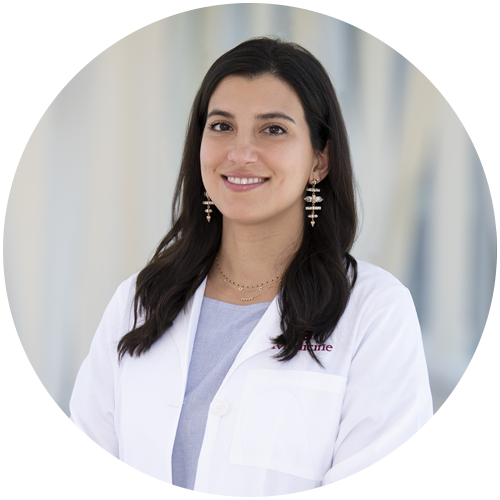
Sarah Gavrizi, MD
|
Debate: We Should Use ICSI for Non-Male Factor Infertility
Friday, 3:30 PM
|
|

Eduardo Hariton, MD
Eduardo Hariton is a board certified Ob/Gyn and infertility specialist. He received his medical training at Harvard, where he completed a combined MD / MBA at Harvard Medical School and Harvard Business School and his Ob/Gyn residency at the Brigham and Women's Hospital and Massachusetts General Hospital. He is currently a clinical fellow in Reproductive Endocrinology and Infertility at the University of California, San Francisco. Eduardo He combines his clinical and business backgrounds to treat patients and think creatively about how to improve the care they receive when seeking fertility services. He has published extensively on a broad range of topics ranging from reproductive surgery to infertility treatments, and his work has been published in high impact journals including Fertility and Sterility, Obstetrics and Gynecology, and the American Journal of Obstetrics and Gynecology. He also serves as an advisor to early stage healthcare companies.
|
Debate: We Should Use ICSI for Non-Male Factor Infertility
Friday, 3:30 PM
|
|

Sunah Hwang, MD MPH PhD
Dr. Sunah Hwang, MD MPH PhD is an Associate Professor of Pediatrics at the University of Colorado School of Medicine, The Lula O. Lubchenco Chair in Perinatal Medicine, and a neonatologist in the NICU at Children’s Hospital Colorado and University Hospital at the Anschutz Medical Campus. She is an NIH-funded perinatal health services researcher whose work focuses on the transition of high-risk infants from hospital to home and optimizing parental engagement for medically vulnerable infants. Dr. Hwang is also passionate about state perinatal quality collaboratives. During her time in Massachusetts, she formed and led the Massachusetts Hospitals Safe Infant Sleep Quality Improvement Collaborative. Presently, she leads the Colorado effort to improve the care of opioid exposed newborns as well as the collaborative focused on improving family engagement in the NICU. Dr. Hwang is the Vice Chair of the Colorado Perinatal Care Quality Collaborative.
|
Longterm Health Outcomes Following ART: From Patients to Offspring
Saturday, 11:00 AM
|
|

Ijeoma Iko, MD
Dr. Ijeoma (Ij) Iko is a Reproductive Endocrinology and Infertility fellow at the University of Utah. She received her bachelor’s degree from Duke University with a focus in health policy and earned her medical degree from Brown University. She completed her Obstetrics and Gynecology residency at the University of California, Davis. Dr. Iko’s clinical interests include: infertility, recurrent pregnancy loss, and polycystic ovarian syndrome. Her research interests include: cost-effective care analyses, disparities in infertility diagnoses and treatment outcomes as well as social and environmental impacts on fertility. Dr. Iko also has an interest in patient education and advocacy.
|
Debate: We Should Use ICSI for Non-Male Factor Infertility
Friday, 3:30 PM
|
|

Griffin Jones
Griffin Jones is the founder of Fertility Bridge, a business development firm that helps fertility centers and organizations attract and retain the right patients and clients. Fertility Bridge supports these organizations by using digital media and creative strategy to help them stay ahead of their competition.Griffin’s entire team focuses exclusively on the field of reproductive health.Griffin is the author of The Fertility Marketing Blog and The Ultimate Guide to Fertility Marketing. He is also the host of Inside Reproductive Health. He is a proud sponsor of RESOLVE: The National Infertility Association as well as a proud member of the American Society for Reproductive Medicine (ASRM) and Association of Reproductive Managers (ARM). He is a recovering Buffalo Bills fan and a consummate student of human behavior.You can impress Griffin with any knowledge of Nuestros Pequeños Hermanos, or Big Brothers Big Sisters..
|
What Brings Patients into a Practice and What Keeps Them There
Saturday, 11:00 AM |
|
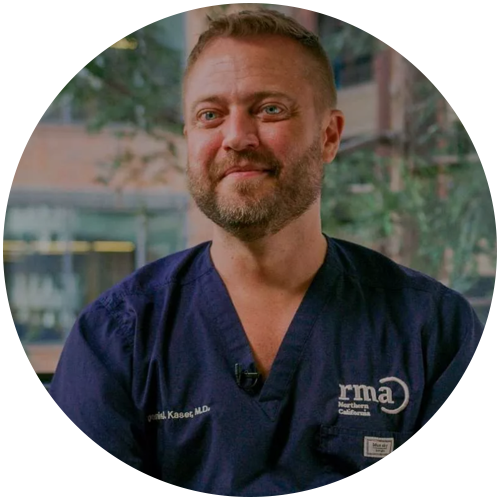
Daniel Kaser, MD
Dr. Daniel Kaser is a board-certified Reproductive Endocrinology and Infertility physician who specializes in third-party reproduction (donor egg, sperm and embryo, and gestational surrogacy), fertility preservation, diminished ovarian reserve, recurrent pregnancy loss, and care of the LGBTQ+ patient. He received his medical degree from Dartmouth Medical School and completed internship and residency in Obstetrics and Gynecology at Harvard Medical School in the Brigham and Women’s / Massachusetts General Hospital Integrated Residency Program, where he served as the Teaching Chief Resident. Dr. Kaser then continued sub-specialty training at Harvard Medical School as a Clinical Instructor and Fellow in Reproductive Endocrinology and Infertility at Brigham and Women’s Hospital, Center for Infertility and Reproductive Surgery. Following fellowship, Dr. Kaser joined RMA New Jersey as an attending physician and Director of Third-Party Reproduction, where he practiced for three years. He now leads the third-party and LGBTQ+ team at RMA Northern California in San Francisco. He is a Fellow of the American Congress of Obstetricians and Gynecologists and a member of the American Society for Reproductive Medicine.
Dr. Kaser has been recognized with numerous awards for his clinical and surgical expertise, including the Barry D. Smith Award for excellence in OB/GYN; the Rolf C. Syvertson Fellow Award for “breadth of human concern, selfless mentoring, and a deep love of medicine;” the Mosenthal Surgical Society Award for achievement in surgery; and The Good Physician Award for “best exemplifying the personal and intangible qualities of the good physician” selected by his peers. During postdoctoral training, Dr. Kaser was voted outstanding teacher of medical students and residents for four consecutive years. In 2014 his basic research work in the IVF laboratory was awarded funding from the National Institutes of Health and the Foundation for Embryonic Competence and later recognized with the ASRM Scientific Prize paper in 2016 and the SRBT Clinical Science award in 2017. He has been invited to speak both nationally and internationally and is the author of numerous peer-reviewed publications, chapters, videos, and abstracts. Dr. Kaser serves on the Editorial Board for Fertility and Sterility, is an Ad hoc reviewer for the Journal of Assisted Reproduction and Genetics, Human Reproduction, and Reproductive BioMedicine Online, and previously worked as a consultant for the World Health Organization (WHO) as a member of the Expert Working Group for Assisted Reproductive Technologies.
“My goal is to help my patients, regardless of barrier, become parents, in the most compassionate, evidence-based, and personalized manner possible,” says Dr. Kaser.
|
Debate: Non-Invasive Embryo Selection Techniques Are Clinically Useful
Thursday, 2:45 PM
Practical tips to run an LGBTQ friendly anti-homophobic practice
Saturday, 8:00 AM
|
|

Steven Katz, MD
Steven L. Katz, MD has focused his career solely on advanced reproductive care since 1995. A distinguished undergraduate at Cornell University, he received his medical degree with honors at Cornell Medical College in 1989, completed his residency in OB/GYN and a specialty fellowship in Reproductive Endocrinology and Infertility at the University of California, San Francisco. Over the past 20+ years, Dr. Katz has developed 4 unique IVF programs and maintained countless relationships with physicians, embryology lab directors and industry. In developing these IVF programs he came to realize the lack of appropriate medical malpractice risk management and claims prevention and management in the REI practice environment. Dr Katz has now dedicated his professional life to creating REI Protect, LLC. REI Protect is the only risk management and medical professional liability program fully dedicated to REI practices and IVF laboratories in the US.
|
REI Risk Management: Important Cases to Learn From
Thursday, 12:15 PM |
|

Paul Lin, MD
Dr Lin is currently a physician in a busy private practice at Seattle Reproductive Medicine where he also serves as the Medical Director of the Seattle Reproductive surgery center and has helped SRM grow from a modest group of 4 academic physicians and 20 employees to 13 REI physicians, 3 urologist, 8 advanced practice practitioners and over 250 employees. He is currently a PAST President of the Society of Assisted Reproductive Technology (SART) and serves on the PCRS board. Prior to being a founding member of SRM, he was teaching faculty at University of Washington in the Division of Reproductive Endocrinology and Infertility. He did his fellowship at the University of Louisville and OBGYN residency training at Baystate Medical Center in Springfield, MA.In addition to his usual work in Assisted Reproductive Technology, he has a special love and interest in reproductive surgery and extensive experience with laparoscopic and hysteroscopic fibroid removal; surgical management of endometriosis. Not only does he consider tubal repair surgery (a dying art in the In Vitro Fertilization generation) but also one of the few fertility specialist who still performs tubal reversals.
|
Debate: Non-Invasive Embryo Selection Techniques Are Clinically Useful
Thursday, 2:45 PM
|
|
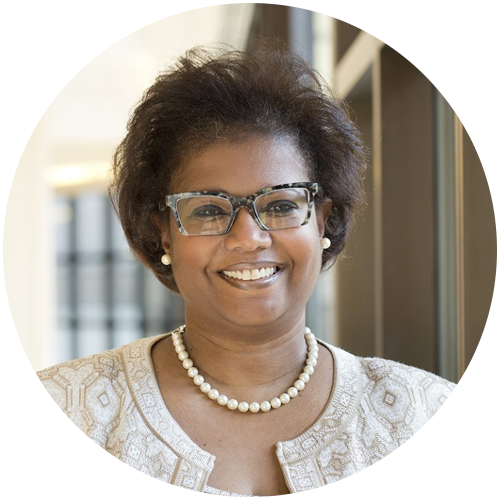
Erica Marsh, MD, MSCI, FACOG
Erica E. Marsh, MD, MSCI, FACOG, is the S. Jan Behrman Collegiate Professor of Reproductive Medicine at the University of Michigan Medical School and Chief of the Division of Reproductive Endocrinology and Infertility in the Department of OBGYN. She is also Associate Professor of Women’s Studies at University of Michigan. She is the Founder and Director of the Women’s Health and Reproductive Disparities Collaborative (onWHARD), a group committed to advancing reproductive health through meaningful research, empowering education, and committed advocacy. She is also the Director of Community Engagement for the Michigan Institute for Clinical and Health Research, the NIH-funded CTSA program at UM.
Dr. Marsh graduated magna cum laude from Harvard College and cum laude from Harvard Medical School. She completed her residency at the Integrated OBGYN Residency at the Brigham and Women’s Hospital and Massachusetts General Hospital followed by a Reproductive Endocrinology and Infertility fellowship at Northwestern University. She also earned a Master of Science in Clinical Investigation from Northwestern.
Dr. Marsh has received millions of dollars in funding to support her research and has published significantly in the area of fibroids, and health disparities in reproductive health. She investigates drivers of the extensive extracellular matrix (ECM) seen in uterine fibroids and the role of microRNA in its development. She is also interested in the interplay between obesity and glucose dysregulation and fibroid development.
Dr. Marsh is a committed community advocate, scientific mentor, and proponent of community-engaged research. She actively builds partnerships to develop relevant research agendas with diverse teams inclusive of community members and organizations, faculty colleagues, fellows, residents, and students to conduct socially-meaningful research and support positive research experiences.
|
Debate: Non-Invasive Embryo Selection Techniques Are Clinically Useful
Thursday, 2:45 PM
Diversity and Health Care Disparities in Reproductive Medicine
Friday, 8:45 AM
|
|

Jerrine Morris, MD
Dr. Jerrine Morris is a Reproductive Endocrinology and Infertility Fellow at UCSF. She graduated cum laude with a Bachelor of Science in both Psychology and Biology with minors in Chemistry and Medicine and Society from Virginia Tech. She then completed a Master of Public Health in Epidemiology at Tulane University, School of Public Health and Tropical Medicine which reaffirmed her decision to work in women’s health and more specifically, as an advocate for marginalized women. While in medical school at Virginia Commonwealth University, residency at Emory University, and currently in fellowship, she’s presented multiple abstracts and written numerous publications exploring disparities seen in women’s reproductive health both at the individual and population level.As a fellow, she is passionate at exploring causes of disparities in infertility among women of color, promoting increased access to fertility services, and advocating for research that explores infertility in socioeconomically, ethnically, and geographically diverse populations. As Chair of the American Society for Reproductive Medicine Health Disparities Special Interest Group, she is charged to facilitate programs and opportunities that address reproductive health needs of underrepresented populations with the ultimate goal to reduce disparities in reproductive health and pregnancy outcomes, something she staunchly advocates for.
|
Debate: We Should Use ICSI for Non-Male Factor Infertility
Friday, 3:30 PM |

Bill Petok, PhD
In addition to a clinical practice in psychology, Bill Petok is a Clinical Associate Professor of Obstetrics and Gynecology at Thomas Jefferson University. He earned his doctorate at the University of Maryland, College Park, in 1978. Bill is a past chair of the Mental Health Professional Group of the American Society for Reproductive Medicine and has served on the Executive Council of the Society for Assisted Reproductive Technology. He regularly speaks on the psychosocial component of assisted reproductive technologies and sexuality. His publications include book chapters on Infertility Counseling, Sexuality and Gender Based Differences as well as journal articles on male factor infertility, the interrelationship of religion and sexuality and the treatment of sexual dysfunctions. He is an associate editor of Post Graduate Obstetrics and Gynecology and a regular reviewer for Fertility and Sterility and other reproductive health journals. In 2021, Elsevier published his co-edited text, Psychological and Medical Perspectives on Fertility Care and Sexual Health.
|
Patient Anxiety- Lessons in Reproductive Mental Health From the COVID-19 Pandemic
Thursday, 1:00 PM
|
|

Ranjith Ramasamy, MD
Dr. Ranjith Ramasamy is a miami based medical researcher and urologist. He is known for academic contributions to reproductive medicine, including testosterone deficiency, regenerative therapy, erectile dysfunction, and prostate cancer studies. Dr. Ramasamy has co-authored over 300 publications in the domain of male infertility and sexual dysfunction and sits on the editorial board of 10 journals. Most recently, Dr. Ramasamy led the first study about sperm parameters before and after COVID-19 vaccination, becoming JAMA’s most viewed study since its publication. He currently serves as Director of the Reproductive Urology Fellowship program at the University of Miami Miller School of Medicine.
|
Modern Medical Therapy for the Infertile Male
Friday, 1:45 PM
|
|
 Phillip Romanski, MD Phillip Romanski, MD
Phillip Romanski received his medical degree from the University of Central Florida (Orlando, FL) and completed obstetrics and gynecology residency at the Brigham & Women’s Hospital and Massachusetts General Hospital (Boston, MA) in 2019. In June 2022, he will complete his fellowship in reproductive endocrinology and infertility at the Weill Cornell Medical Center/NewYork-Presbyterian Hospital (New York, NY) and will also graduate with a Master of Science in Clinical and Translational Investigation. This September, he will begin his career with Shady Grove Fertility in New York City. Phillip is an active clinical researcher with specific interests in infertile females and males with a poor prognosis and he looks forward to continuing his research endeavors following the completion of his clinical training.
|
Debate: We Should Use ICSI for Non-Male Factor Infertility
Friday, 3:30 PM |
|

David Sable, MD
David Sable MD directs healthcare and life science investing for the Special Situations Funds and is portfolio manager of the Special Situations Life Sciences Fund. After graduating from the Wharton School and the University of Pennsylvania School of Medicine, he trained in obstetrics and gynecology at New York Hospital – Cornell Medical Center, and in reproductive endocrinology at the Brigham and Women’s Hospital. He co-founded and served as director of the Institute for Reproductive Medicine and Science at Saint Barnabas Medical Center in New Jersey, and was founder and CEO of Assisted Reproductive Medical Technologies, a private company that was acquired in 1999.
After leaving clinical medicine, Dr. Sable managed a proprietary healthcare portfolio at Deutsche Bank before joining the Special Situations Funds. Dr. Sable is an adjunct in the department of biology at Columbia University, and teaches Entrepreneurship in Biotechnology at Columbia’s Graduate School of Arts and Sciences. He has lectured on healthcare investing, policy, and biotechnology business development at the Wharton School, NYU, Rockefeller University and Rutgers; has delivered keynote addresses to the American Fertility Society, the Texas Fertility Society and the Mexican Fertility Society; and appeared on the CBS Morning News, ABC World News Tonight, NY1 News and PBS Nova. He serves on the board of directors of reproductive healthcare company Progyny, serves as a director for the nonprofit organization Resolve, and is a member of the clinical advisory board for Ovascience, a Massachusetts-based public company developing advanced treatments for infertility. In addition to his academic publications, he has written for the Newark Star-Ledger, Yoga Journal, Xconomy, Genetic Engineering and Biotechnology News, Wharton Magazine, the Columbia Spectator, and writes the and other secrets of the buy side and the “…and other things I learned as an IVF doc” blogs for Forbes Magazine.
|
What the Future Holds for the Art Industry
Saturday, 9:30 AM
Lab Session: Bringing New Technology Into the Art Lab
Saturday, 11:00 AM
Automation and Artificial Intelligence: Is Cutting-Edge Research Ready for Prime Time?
Sunday, 9:30 AM
|
|

Richard Scott, MD, HCLD
Richard T. Scott, Jr. is a board-certified Reproductive Endocrinologist of IVIRMA and one of the founding partners of Reproductive Medicine Associates of New Jersey. Dr. Scott’s research interests include follicular stimulation, embryology, preimplantation genetic screening and non-invasive screening of embryonic reproductive competence. Dr. Scott has published over 700 scientific papers and published abstracts.
|
Tips to Passing Your Written and Oral Boards
Wednesday, 1:45 PM
The Present and Future of Embryo Selection
Thursday, 8:45 AM
Debate: Non-Invasive Embryo Selection Techniques Are Clinically Useful
Thursday, 2:45 PM
Lab Session: Bringing New Technology Into the Art Lab
Saturday, 11:00 AM
|
|

Chandra Shenoy, MD
Chandra Shenoy, MD is an assistant professor in obstetrics and gynecology at Mayo Clinic in Rochester, Minnesota. Following medical school at St. Louis University and residency at the Cleveland Clinic Foundation and MetroHealth Medical Center, she completed a 3 year fellowship in reproductive endocrinology and infertility at Mayo Clinic. While in training at Mayo Clinic, she also completed a masters in biomedical sciences. She is board certified in both obstetrics and gynecology and in the subspecialty of reproductive endocrinology.Clinically, Dr. Shenoy specializes in infertility with a focus in complex in vitro fertilization (IVF) and third party reproduction. She is the medical director for the Third Party Reproduction Program at Mayo Clinic which helps build families when donor sperm, donor eggs, or gestational carriers are required. Her interests lie in helping build families of all kinds and she advocates for single individuals, the LGBTQ community, and couples suffering from infertility or pregnancy loss. She is active in education with medical students, residents, and fellows. She is the assistant program director for the reproductive endocrinology and infertility fellowship program.
|
Cultivating an Effective Gestational Carrier Practice
Saturday, 8:45 AM
|
|
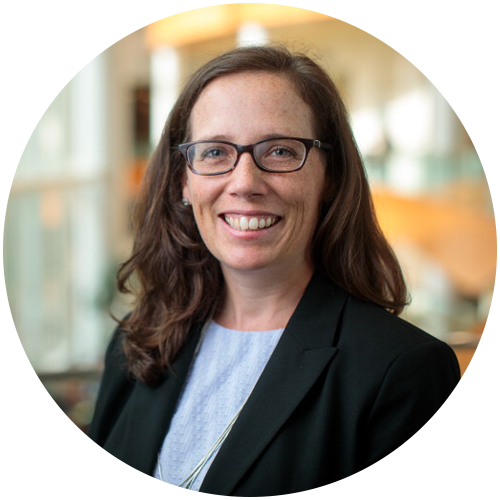 Shannon Laughlin-Tommaso, MD Shannon Laughlin-Tommaso, MD
Dr. Laughlin-Tommaso is an Associate Professor and Consultant in the Department of OB/GYN at Mayo Clinic, where she has worked for the last 10 years. She is Chair of the Division of Gynecology and OB/GYN Department Diversity Leader. Clinically, she is part of the Minimally Invasive Gynecologic Surgeons and leads the Fibroid Clinic. Her research focuses on the epidemiology of uterine fibroids and comparative effectiveness trials for fibroid therapy. Dr. Laughlin-Tommaso participates in the Compare-UF nationwide fibroid registry, is site principal investigator in a multicenter trial on shared decision-making, and is conducting a randomized controlled trial on medical therapy for uterine fibroids. She received her M.P.H. in Epidemiology from the University of North Carolina, Chapel Hill, and was fellowship-trained at the National Institute of Environmental Health Sciences.
|
Management of Fibroids: Implantation and Pregnancy Outcomes
Thursday, 1:45 PM |
|
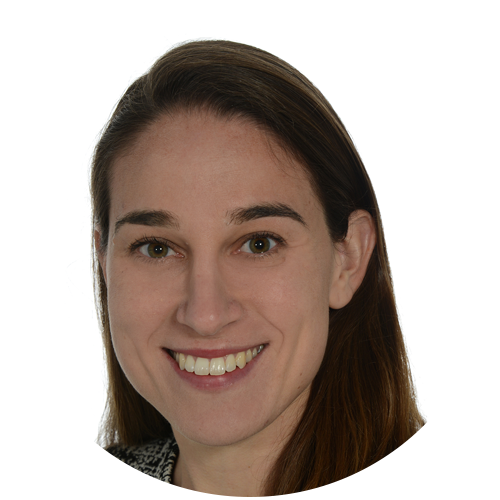 Lauren Verrilli, MD Lauren Verrilli, MD
Lauren Verrilli is a third year fellow at the University of Utah. Her research focuses on primary ovarian insufficiency and familial and genetic determinants of disease status. She is excited to join the faculty at the University of Utah in September 2022.
|
Debate: We Should Use ICSI for Non-Male Factor Infertility
Friday, 3:30 PM
|
|
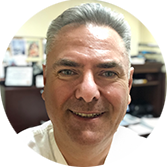
Nikica Zaninovic, PhD
In 1995, Dr Zaninovic joined Weill Cornell Embryology Laboratory and was subsequently appointed the Lab’s Director in 2010. His interests include clinical and experimental embryology as well as stem cell biology. His research is currently focused on the development of new embryo selection protocols using time-lapse microscopy of developing embryos and the application of Artificial Intelligence in the field of Embryology and IVF.
|
Automation and Artificial Intelligence: Is Cutting-Edge Research Ready for Prime Time?
Sunday, 9:30 AM
|
|